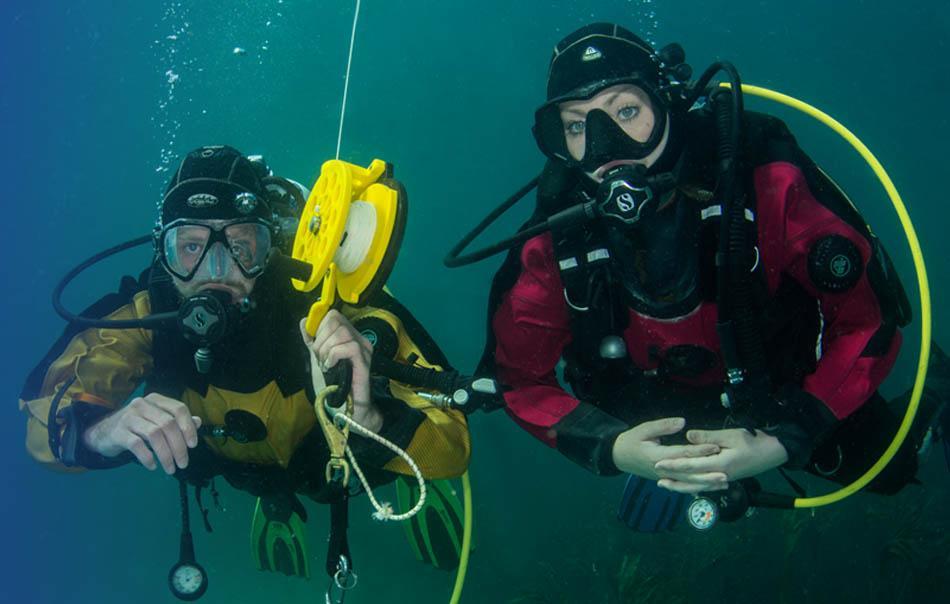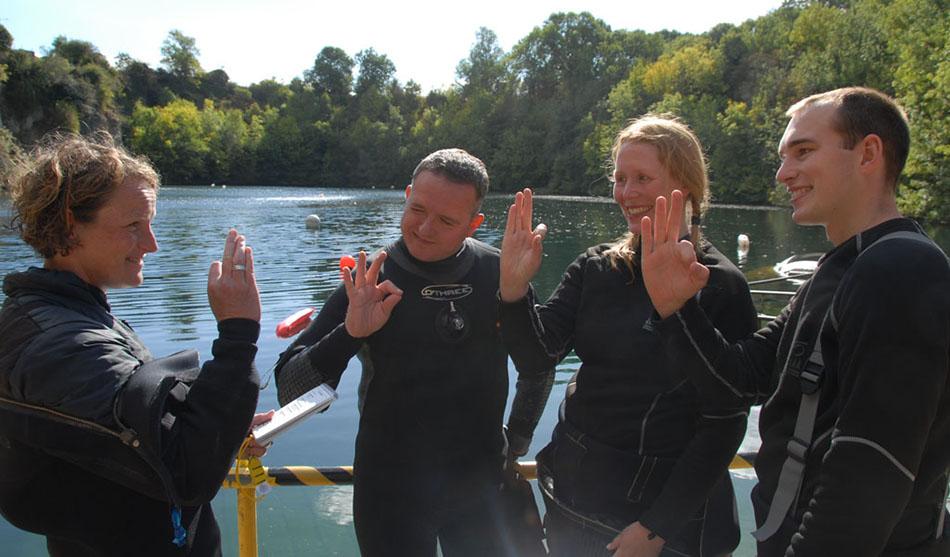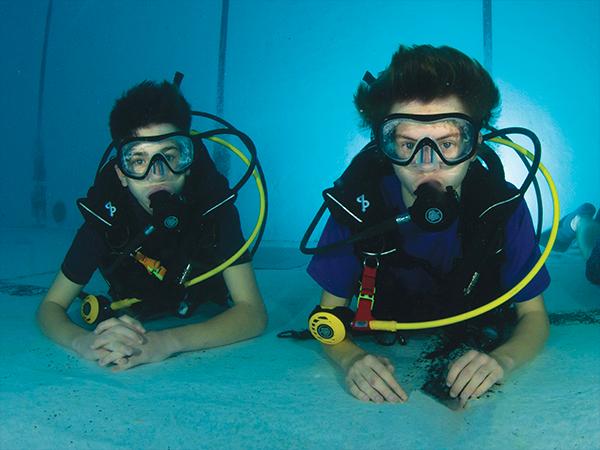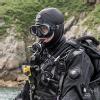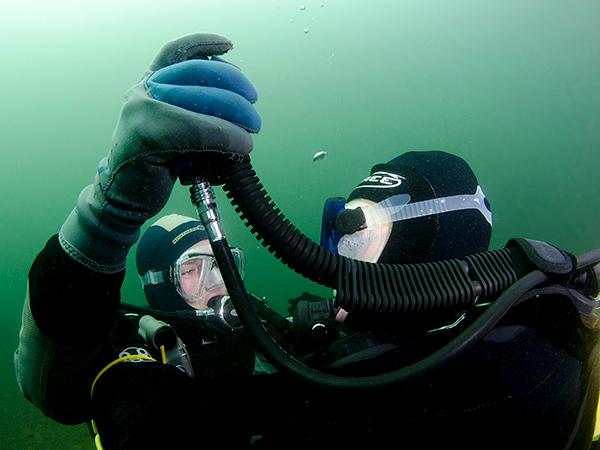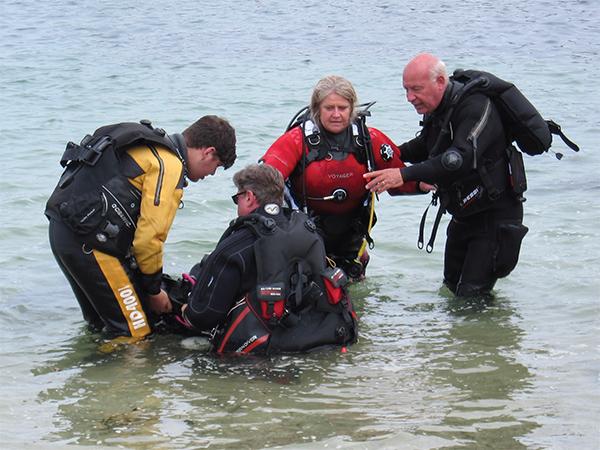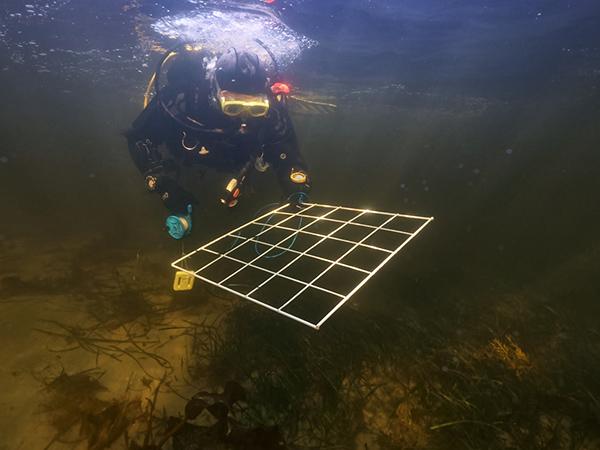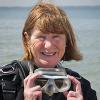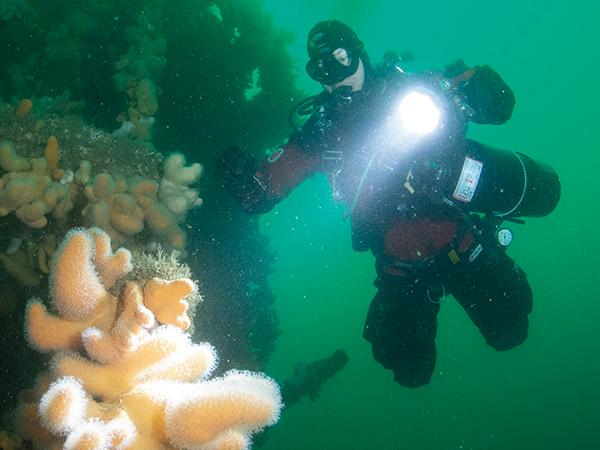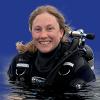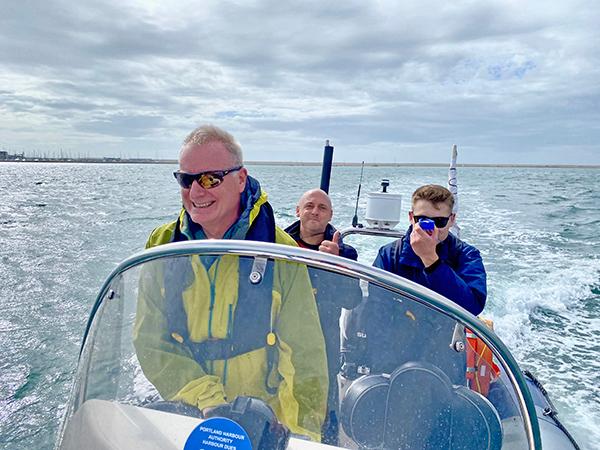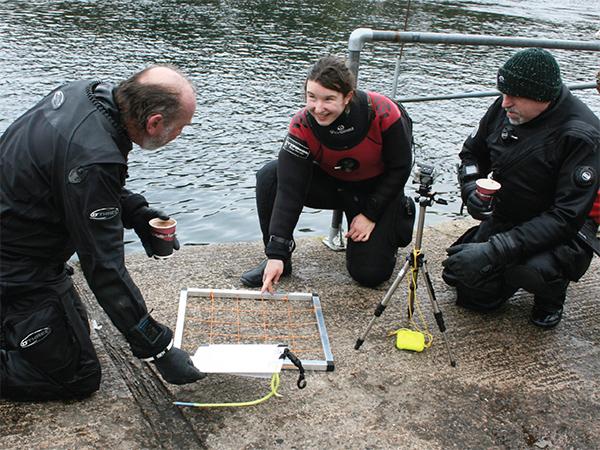Advancing your scuba diving qualifications to become a Sports Diver gives you the opportunity to perform longer, deeper dives with decompression stops, as well as learning rescue skills.
If you want to do more with your diving, the Sports Diver qualification gives you the freedom to explore. Being a Sports Diver allows most people to do all the diving they want in the UK and abroad.
I couldn’t wait to start my Sports Diver training and I’ve not been disappointed. I’ve been able to extend my depth and dive times while building my experience in a range of conditions. I’m excited about where my diving can now take me!
– William Cave, Flintshire SAC
If you already have some diving experience with an entry-level qualification and want to take your underwater adventures to the next level, Sports Diver is your next step in BSAC’s Diver Training Programme.
There are two routes to becoming a Sports Diver – either from Advanced Ocean Diver, or directly from Ocean Diver.
You will broaden your experience in a variety of challenging open-water conditions and learn essential techniques to prepare you for diving to a maximum of 40 metres.
To become a Sports Diver, you must have successfully completed an Ocean Diver or Advanced Ocean Diver course (or have equivalent certification from another recognised training agency) and be aged 12 or older, but you need to be 14 or older to progress to depths greater than 20m post qualification.
Skills that make Sports Divers stand out from the crowd include doing longer deeper dives, with decompression stops if needed.
You’ll learn how to spot if something is wrong and what to do in an emergency including self-rescue, recovery of unresponsive divers, and basic life support – these are among the most valuable skills any diver can learn.
It’s a continually assessed qualification, so after your classroom and in-water training and a short theory exam, you’ll be competent to complete a series of depth progression dives – at increments of 5m – enabling you to dive down to a maximum of 40m.
How do you get there?
Ocean Diver to Sports Diver |
Advanced Ocean Diver to Sports Diver |
|
|
Qualified Sports Divers can dive buddied with another Sports Diver, in familiar locations and conditions, allowing you more freedom to explore. You can also support a Dive Manager as a competent assistant, the first step on the road to helping to organise diving within your club.
You can extend your experience by diving with someone qualified as a Dive Leader or above, under the supervision of a Dive Manager. You can also dive with an Ocean Diver or Advanced Ocean Diver, so long as you stay within conditions they have already encountered.
Your qualification will be recognised worldwide and you will be certified to use breathing gas mixtures of up to 36 per cent nitrox to increase your dive times.
Should you wish, you will also be qualified to complete dives that require in-water decompression which will permit greater bottom time on deeper dives
What diving experiences will this open up for me?
Being competent to dive to 40m allows most divers to do all the diving they want in the UK and abroad. At these depths you can access the majority of UK wreck diving, and with Sports Diver skills you can extend your dive times safely and relax to take in your surroundings and any wildlife you encounter.
Qualifying as a Sports Diver will also enable you to take part in a wider variety of BSAC Skill Development Courses to increase your diving skills.
Not a member yet?
- Enquire now to get started
Members:
- Option 1: Train with your club - Log in to MyBSAC to buy digital training packs or eLearning in the BSAC Shop
- Option 2: Book onto a scheduled Diver Training Day - and work towards completing the Sports Diver course
- Option 3: Train with a BSAC Training Centre
I wanted to be able to dive shipwrecks in the 30m range more safely, now I am confident that I could help my buddy if they were in trouble
– Alex Ratcliffe
Your next steps – developing your skills
After completing Sports Diver and consolidating your skills, your options for diving significantly expand.
- You could learn to plan and lead dives by doing the Dive Leader course, which is the next grade in BSAC’s Diver Training Programme, and takes you further on the path to helping organise dives and expeditions within your club.
- You could develop specific skills to expand your diving interests further. There are more than 30 BSAC Skill Development Courses (SDCs) open to Sports Divers from Ice Diving or Underwater Photography, to Accelerated Decompression Procedures and Twinset training.
- You could start on the road to instructing by signing up for BSAC’s Instructor Foundation Course to become an Assistant Diving Instructor.

